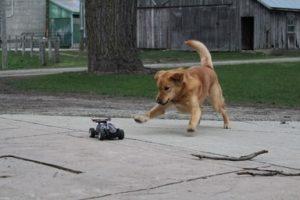As humans we are told that if we eat healthy and exercise we will live a long and healthy life, why would this statement be any different for our pets? Nutrition is hands down one of the most important building blocks for our pets to live a healthy lifestyle. However, it is still one of the hardest decisions we have to make as pet owners. The question that we should be asking ourselves is: Is this food right for my pet? There are a lot of different pet foods out there with many different ingredients and nutritional claims, so choosing a diet can be a lot of work. Not to worry; below are some helpful hints/tips when choosing a pet food!
Activity Level
- If your pet has a high activity level he is burning more calories, therefore you want a food that will give the correct nutrients to give him enough energy required.

- If your pet has a low activity level (stays inside more than goes outside) he is not burning as many calories and he will usually gain weight on most ordinary diets. Therefore, these dogs should get a food with lower calories or in some instances be fed less food of a maintenance diet. Please discuss this with your regular veterinarian.
Age/Breed
- Age plays a huge role in what your pet should be getting for food.
- Puppies/kittens and pregnant animals need higher calories and more nutrients then a full grown adult pet. When puppies/kittens are growing they need to be on a diet that will help them maintain a good/healthy weight, and will give them the correct nutrients needed to help their growing body, joints, and bones
- Adult pets need a maintenance diet; they do not need all the extra nutrients that a young pet would need.
- Breed
- Depending on the breed of your dog or cat they may need a different food. Bigger breeds such as Great Danes normally need more supplements in their food to help decrease the wear and tear on their joints.

- Smaller dogs such as a Yorkshire terrier, should have diets that will help prevent urinary crystals or stones; and dental disease.
- Depending on the breed of your dog or cat they may need a different food. Bigger breeds such as Great Danes normally need more supplements in their food to help decrease the wear and tear on their joints.
Weight
- Working in the Veterinary Profession unfortunately a common issue that we see is pets that are overweight. Maintaining ideal body weight should be achievable and it is the most important component for your pet to live a long and healthy life.
- Usually when we see overweight pets, it means that the food they are on is either too high in calories, they are getting served too much and/or they are getting to many extra treats or table scraps.
- For weight loss there are certain diets that cater to overweight pets; they are lower in calories and a diet that will make your pet feel fuller so they are not begging for more food.
If you have any questions regarding your pet’s food give us a call to discuss your pet’s nutrition plan. We offer a wide variety of food and we also have weight control programs; including weigh-ins at no charge.
You can also visit our website www.mitchellvets.ca for more information on nutrition.
“Let Food Be Your First Medicine”

